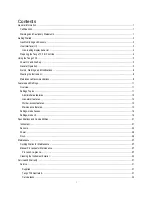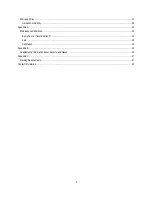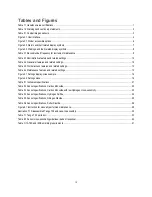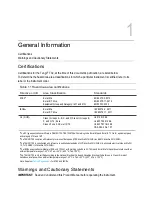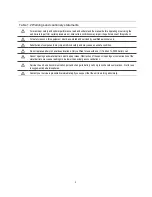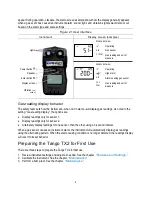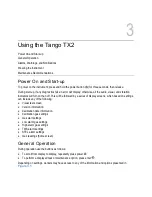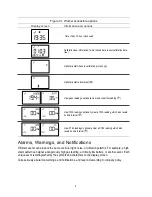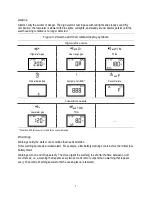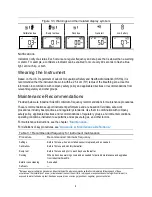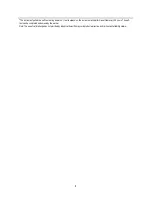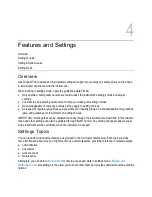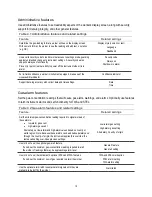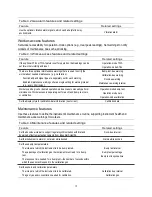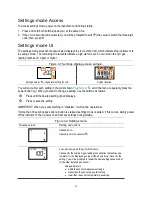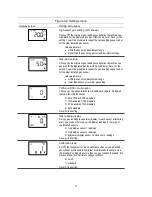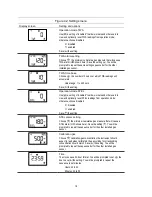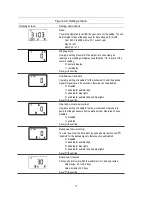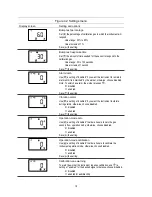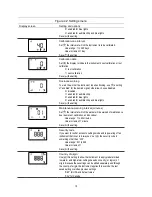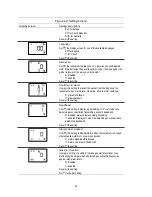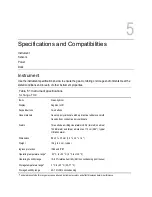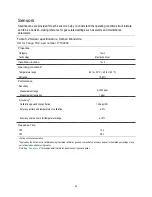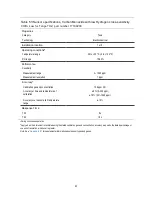
8
Figure 3.3 Warnings and their related display symbols
Calibration due
Bump test due
Dock due
Gas alert
Low battery
Notifications
Indicators notify of a status. Each occurs at a regular frequency and at a pace that is slower than a warning
or alarm. For example, a confidence indicator can be enabled to occur every 90 seconds to flash a blue
light, emit a chirp, or both.
Wearing the Instrument
Based on the U.S. Department of Labor's Occupational Safety and Health Administration (OSHA), it is
recommended that the instrument be worn within a 25.4 cm (10") radius of the breathing zone. Use this
information in combination with company safety policy and applicable directives or recommendations from
relevant regulatory and other groups.
Maintenance Recommendations
Provided below are Industrial Scientific minimum-frequency recommendations for maintenance procedures.
These recommendations support instrument performance and are based on field data, safe work
procedures, industry best practices, and regulatory standards. Use them in combination with company
safety policy, applicable directives and recommendations of regulatory groups, environmental conditions,
operating conditions, instrument use patterns and exposure to gas, and other factors.
For maintenance instructions, see the chapter,
For definitions of key procedures, see
“Appendix A, Maintenance Definitions.”
Table 3.1 Recommended frequency for instrument maintenance
Procedure
Recommended minimum frequency
Settings
Before first use, when an installed sensor is replaced, and as needed.
Calibration
a
Before first use and monthly thereafter.
Bump test
Before first use and p
rior to each day’s use
thereafter.
Docking
When a dock due warning occurs and as needed for periodic maintenance and upgrades
from Industrial Scientific.
Exterior case cleaning
As needed.
Self-test
b
—
a
Between regular calibration procedures, Industrial Scientific also recommends calibration immediately following each of these
occurrences: the installation of a new (or replacement) sensor; the unit falls, is dropped, or experiences another significant impact; is
exposed to water; fails a bump test; has been exposed to an over-range (positive or negative) gas concentration.
Summary of Contents for TANGO TX2
Page 6: ......
Page 16: ......
Page 38: ...32 Illustration 7 1 Disassembled Tango TX2 and case top assembly Instrument Case top assembly...



